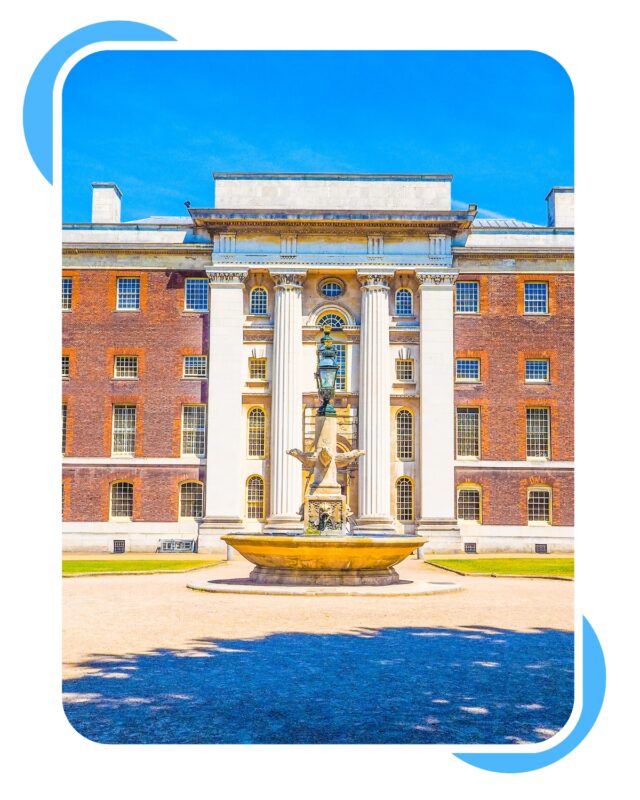
Master of Pharmacy (M Pharma) is a postgraduate course that offers specialized education in various fields of pharmacy, such as Pharmaceutics, Pharmacology, Pharmaceutical Chemistry, and Pharmacognosy. M Pharma is a popular course among students who want to pursue a career in the pharmaceutical industry or academia. With the advancements in the pharmaceutical sector, the demand for skilled professionals has increased, making M Pharma a promising career option. As we approach 2023, students must understand the tips and strategies for success in M Pharma courses to excel in their academic and professional endeavours.

M Pharma Course Highlights
Master of Pharmacy (M.Pharm) is a postgraduate course that offers advanced education and training in various aspects of pharmacy. Here are some key highlights of the M.Pharm course:
Eligibility Criteria for M Pharma
The eligibility criteria for a Master of Pharmacy (M.Pharmacy) vary depending on the university or institute offering the course. However, here are some general eligibility criteria for M.Pharmacy:
- Educational Qualification: Candidates must have a Bachelor of Pharmacy (B.Pharm) degree from a recognized university with a minimum aggregate score of 55-60%. Some universities may also consider candidates with a Pharm.D or equivalent degree.
- Entrance exam: Most universities and institutes conduct entrance exams for admission to M. Pharmacy. Candidates must qualify for the entrance exam with a minimum score to be eligible for admission.
- Age limit: There is no upper age limit for M.Pharmacy admission. However, some universities may have a lower age limit of 21 years for access to the course.
- Work experience: Some universities may prefer candidates with work experience in the pharmaceutical industry or related fields.
- Reservation criteria: Some universities have reservation criteria for candidates in specific categories, such as SC/ST/OBC/PH.
It’s essential to check the specific eligibility criteria of the university or institute before applying for admission to the M.Pharmacy course.
Admission Process for M Pharma
The admission process for M Pharma (Master of Pharmacy) may vary depending on the institution and country. However, here are some general measures that are generally involved in the admission procedure:
- Eligibility criteria: Candidates must ensure that they meet the eligibility criteria set by the institution. Generally, candidates must have completed a Bachelor’s degree in Pharmacy (B.Pharm) with a minimum required percentage.
- Entrance exam: Many institutions require candidates to take an entrance exam, which tests their knowledge of pharmacy, pharmacology, and medicinal chemistry. The type of entrance exam can vary, such as national-level or institution-specific exams.
- Application process: Candidates must submit their application form, along with the required documents, such as educational certificates, identity proof, and passport-size photographs. The application fee may also be needed.
- Selection process: The selection process for M Pharma may include a written test, group discussion, and personal interview. The weightage given to each component may differ depending on the institution.
- Counselling and seat allocation: After the selection process, candidates are called for counselling, where they can choose their preferred specialization based on their rank and availability of seats. The seat allocation is done based on the merit list.
- Admission formalities: Finally, candidates who are allotted a seat must complete the admission formalities by submitting the required documents, paying the admission fee, and meeting other necessary formalities.
It’s important to note that the admission process may differ for international students, and it’s advisable to check the institution’s website for detailed information.
M Pharma Entrance Exams 2023
M Pharma (Master of Pharmacy) entrance exams are conducted at national and state levels to select candidates for admission into various pharmacy colleges and universities. These exams test the candidates’ knowledge in pharmacy, pharmacology, medicinal chemistry, and related fields.
| Entrance Exams | Registration Dates | Exam Dates |
|---|---|---|
| GPAT | February 13 – March 13, 2023 | May 22, 2023 |
| NIPER JEE | April 17 – May 16, 2023 | June 23, 2023 |
| NMIMS NPAT | December 01 – May 21, 2023 | January 04 – May 31, 2023 |
| CUCET | November 28 – May 29, 2023 | November 28- May 30, 2023 |
| BITS HD | March 21 – April 30, 2023 | May 20 – 27, 2023 |
M Pharma Specializations
M Pharma (Master of Pharmacy) offers various specializations catering to different pharmacy practice areas. Some of the common M Pharma specializations include:
- Pharmaceutics: It deals with the formulation and development of medicines and drug delivery systems.
- Pharmacology: It focuses on the study of the effects of drugs on the human body and their mechanisms of action.
- Pharmaceutical Chemistry synthesizes, designs, and develops new drugs and chemical compounds.
- Pharmacognosy: It studies natural products, such as plants and animals, for their medicinal properties.
- Hospital Pharmacy: It focuses on managing medications in a hospital setting, including drug distribution, patient counselling, and drug information services.
- Clinical Pharmacy: It involves using medications in patient care and includes activities such as drug therapy monitoring, patient counselling, and medication management.
- Pharmaceutical Biotechnology: It involves the use of biotechnology techniques in developing and producing pharmaceuticals.
M Pharma Syllabus
Here’s the translation of the list you provided:
- Modern Pharmaceutical Analytical Techniques: This course covers advanced analytical techniques used in the pharmaceutical industry for quality control, drug development, and formulation.
- Drug Delivery System: This course focuses on the principles and technologies involved in the development and design of drug delivery systems, including controlled release systems, implants, and transdermal patches.
- Modern Pharmaceutics: This course deals with the formulation, development, and evaluation of modern pharmaceutical dosage forms such as tablets, capsules, and injectables.
- Regulatory Affairs: This course covers the regulatory requirements and procedures for drug development, registration, and approval, including Good Manufacturing Practices (GMP) and Good Clinical Practices (GCP).
- Molecular Pharmaceutics: This course covers molecular biology and biotechnology in drug discovery and development, including gene therapy, nanotechnology, and drug targeting.
- Advanced Biopharmaceutics & Pharmacokinetics: This course focuses on studying drug absorption, distribution, metabolism, and elimination in the body, as well as the principles of drug biopharmaceutics and pharmacokinetics.
Course Curriculum for M Pharma Specializations
Here are the course curriculums for some of the M Pharma specializations:
-
M Pharma in Pharmacology
-
Advanced Pharmacology
-
Pharmacotherapeutics
-
Clinical Pharmacology
-
Experimental Pharmacology
-
Toxicology
-
Regulatory Toxicology
-
Pharmacogenomics
-
M Pharma in Pharmaceutics:
-
Advanced Pharmaceutics
-
Novel Drug Delivery Systems
-
Pharmaceutical Formulation Development
-
Biopharmaceutics and Pharmacokinetics
-
Pharmaceutical Process Validation
-
Pharmaceutical Quality Assurance
-
Regulatory Affairs
M Pharma in Pharmaceutical Analysis
-
Advanced Analytical Techniques
-
Quality Control and Quality Assurance
-
Instrumental Methods of Analysis
-
Regulatory Compliance and Validation
-
Bioanalytical Techniques
-
Pharmaceutical Impurity Profiling
-
Good Laboratory Practices
M Pharma in Pharmaceutical Technology
-
Advanced Pharmaceutical Technology
-
Design and Development of Pharmaceutical Products
-
Process Validation and Optimization
-
GMP Compliance and Validation
-
Pharmaceutical Manufacturing Technologies
-
Regulatory Affairs and Intellectual Property Rights
-
Technology Transfer and Commercialization
-
M Pharma in Pharmacognosy:
-
Phytochemistry and Pharmacognosy
-
Analytical Techniques in Herbal Drug Research
-
Traditional Medicines and Herbal Drugs
-
Phytopharmaceuticals and Nutraceuticals
-
Ethnopharmacology and Herbal Formulations
-
Quality Control and Standardization of Herbal Drugs
-
Herbal Drug Development and Regulatory Affairs

Top NIRF-ranked M Pharma Colleges
The National Institutional Ranking Framework (NIRF) is a ranking system in India that evaluates and ranks higher education institutions based on various parameters such as teaching, research, outreach, and perception. For students interested in pursuing a Master of Pharmacy (M.Pharm) degree in India, here are some of the top NIRF-ranked colleges.
-
Jamia Hamdard University, New Delhi
-
Panjab University, Chandigarh
-
National Institute Of Pharmaceutical Education And Research, Mohali
-
Institute Of Chemical Technology, Mumbai
-
BITS Pilani
-
National Institute Of Pharmaceutical Education And Research, Hyderabad
-
Manipal College Of Pharmaceutical Sciences, Manipal
-
JSS College Of Pharmacy, Udagamandalam
-
JSS Academy Of Higher Education u0026amp; Research, Mysore
-
Shobhaben Pratapbhai Patel School Of Pharmacy u0026amp; Technology Management, Mumbai
Top 10 Private M Pharma Colleges
Master of Pharmacy (M.Pharm) is a postgraduate degree program in pharmacy that prepares students for various career opportunities in the pharmaceutical industry, academia, research, and healthcare sectors. Many private colleges in India offer M.Pharm programs with world-class infrastructure, experienced faculty, and industry collaborations. Here are some of India’s top private M.Pharm colleges based on various ranking parameters.
-
Institute of Chemical Technology Mumbai
-
Manipal College of Pharmaceutical Sciences Manipal
-
Bombay College of Pharmacy Kalyan
-
JSS College of Pharmacy Ooty
-
L. M. College of Pharmacy Ahmedabad
-
Birla Institute of Technology (BIT) Mersa, Ranchi
-
Poona College of Pharmacy, Pune
-
Al Ameen College of Pharmacy (AACP), Bangalore
-
Madras Medical College Chennai
-
P.S.G College of Pharmacy Coimbatore

M Pharma Career Scope:
With the growing demand for healthcare services and the increasing emphasis on research and development in the pharmaceutical industry, M Pharma offers a promising career path for aspiring pharmacists.
Job Profile
A Master of Pharmacy (M Pharm) degree opens opportunities for students passionate about pharmaceuticals and healthcare. With an M Pharm degree, graduates can choose from various job profiles, including drug research and development, clinical research, regulatory affairs, quality control, pharmacovigilance, and drug marketing.
Salaries
The salary of M Pharm graduates depends on the job profile, organization, and experience. On average, the starting salary for M Pharm graduates in India is around INR 3-5 lakhs per annum, and it can go up to INR 10-15 lakhs per annum for experienced professionals.
Top Recruiter
Top recruiters for M Pharm graduates include pharmaceutical companies, research organizations, hospitals, regulatory agencies, and academic institutions. Some of the top recruiters in India include Cipla, Sun Pharma, Dr Reddy’s Laboratories, Lupin, and Glenmark Pharmaceuticals. Some of the leading recruiters for M Pharm graduates in the United States include Pfizer, Merck, Johnson & Johnson, Novartis, and Eli Lilly.

M Pharma Frequently Asked Questions (FAQs)
Here are some frequently asked questions (FAQs) about M Pharma:
M Pharma, also known as Master of Pharmacy, is a postgraduate degree program in pharmacy. It is typically a two-year program that focuses on advanced studies in pharmacy, including drug design, drug delivery, pharmacology, pharmacokinetics, and clinical pharmacy.
The eligibility criteria for M Pharma can vary depending on the university or institution offering the program. However, in general, candidates must have a Bachelor of Pharmacy (B.Pharm) degree from a recognized university with a minimum aggregate score of 50%.
M Pharma graduates can pursue a career in various pharmacy-related fields, including pharmaceutical research and development, drug regulatory affairs, drug safety monitoring, pharmacovigilance, clinical research, hospital pharmacy, community pharmacy, and academic research.
The average salary after M Pharma can vary depending on the job role, industry, and location. However, M Pharma graduates generally earn a starting salary of around INR 3-5 lakhs per annum, potentially making much more with experience and career growth.
